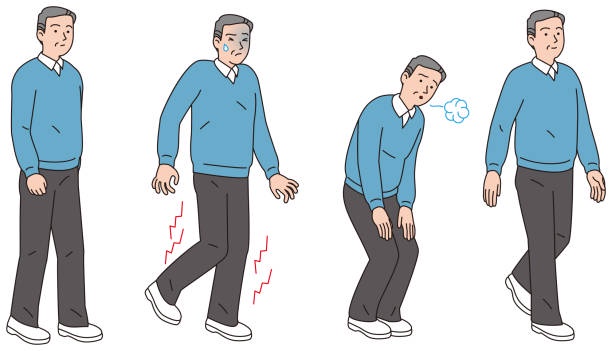If you've recently observed alterations in your walking pattern, it's crucial to pinpoint the underlying cause promptly. Several factors can influence your gait and mobility, some requiring simple lifestyle adjustments while others necessitate prompt medical attention. Read on to explore twelve common reasons for gait changes that warrant your attention.
1. Poor posture
Your posture significantly impacts how you walk. A misaligned spine affects your muscles and pelvic position, potentially leading to altered gait patterns. Moreover, poor posture often accompanies back pain, which can further restrict your range of motion and disrupt normal walking. Maintaining proper posture is essential for preserving optimal gait mechanics.
2. Foot problems
Various foot conditions, such as bunions, plantar fasciitis, or ingrown toenails, can cause discomfort while walking, prompting you to modify your gait to alleviate pain. Seeking evaluation and treatment from a podiatrist is advisable to address these issues effectively and restore normal walking mechanics.
3. Inappropriate footwear
Ill-fitting shoes, whether too tight or loose, can result in blisters, corns, and calluses, leading to gait alterations. Similarly, prolonged wear of high heels shifts body weight forward onto the balls of the feet, affecting gait mechanics. Opting for properly fitting, supportive footwear and using orthotics can mitigate these issues.
4. Back pain
Back pain, stemming from various causes like spinal injuries, muscle strain, or poor posture, often coincides with gait abnormalities. Individuals experiencing back pain, especially those with spinal conditions, should seek assessment and treatment from a pain doctor to address both pain and gait issues effectively.
5. Tight clothing
Wearing constrictive clothing can inadvertently impact your gait. Restrictive garments may limit natural movement patterns, leading to subtle gait modifications. If you notice discomfort or restriction due to tight clothing, opting for more comfortable attire is advisable.
6. Arthritis
Arthritis, characterized by joint inflammation and pain, can significantly affect mobility and gait. While arthritis isn't curable, managing symptoms through various treatment modalities and lifestyle modifications can alleviate discomfort and improve overall mobility, including gait mechanics.
7. Obesity
Excess weight places undue stress on joints, often resulting in discomfort and difficulty walking. Obesity exacerbates existing foot issues, spinal conditions, and other health concerns, further impacting gait mechanics. Adopting healthy lifestyle habits, including weight management, can alleviate these issues and enhance mobility.
8. Neurological conditions
Neurological disorders like Parkinson's disease, multiple sclerosis, or stroke can affect the brain's ability to control muscle movements, leading to gait abnormalities. Physical therapy and specialized interventions can help manage these conditions and improve walking ability.
9. Medications
Certain medications may cause side effects like dizziness, muscle weakness, or coordination problems, affecting gait and balance. If you suspect medication-related gait changes, consult your healthcare provider for potential adjustments or alternatives.
10. Peripheral neuropathy
Peripheral neuropathy, characterized by nerve damage in the extremities, can cause numbness, tingling, and weakness, affecting gait and balance. Managing underlying conditions contributing to neuropathy and implementing strategies to protect nerve health can help alleviate symptoms and improve mobility.
11. Age-related changes
As we age, changes in muscle strength, joint flexibility, and balance can impact gait. These age-related changes may necessitate lifestyle modifications, such as regular exercise and balance training, to maintain optimal mobility and prevent falls.
12. Psychological factors
Psychological factors like stress, anxiety, or depression can also influence gait patterns. Emotional distress may manifest physically, leading to tension in muscles and altered movement patterns. Addressing underlying psychological issues through therapy or counseling can help improve overall well-being and gait mechanics.
The bottom line
Seeking medical evaluation upon noticing alterations in your walking pattern is crucial. Timely intervention and appropriate treatment can mitigate complications and restore optimal mobility and quality of life.


No comments yet